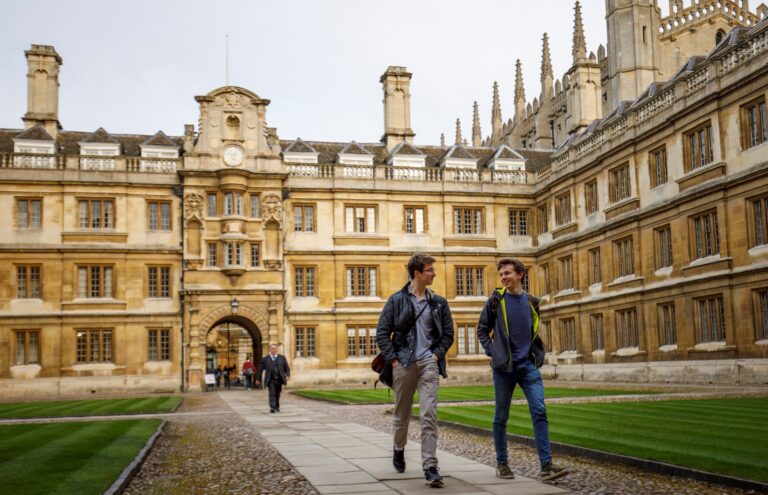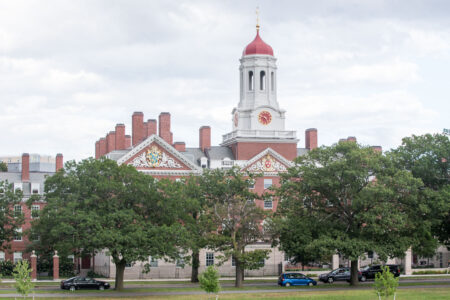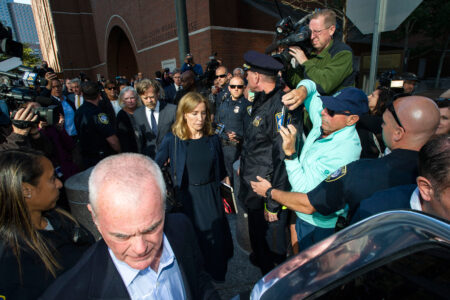
The Russell Group universities are to the UK what the Ivy League is to the US. Well, almost (more on that later).
But what’s definite is that this is a group of 24 most elite universities in the UK.
All are highly ranked and prestigious in their own right (though some are more exalted than the rest).
A lot of this is due to impact — and what makes one uni more impactful than the other is in the research they produce.
Russell Group universities are behind more than two-thirds of the world-leading research in the UK and support over 260,000 jobs across the country, according to the official website,
They are well-known worldwide — 32% of Russell Group university students are from outside the UK.
Every year, thousands pack their hopes and dreams to make it at Russell Group universities — the full list of which is below (arranged by alphabetical order):
- University of Birmingham
- University of Bristol
- University of Cambridge
- Cardiff University
- Durham University
- University of Edinburgh
- University of Exeter
- University of Glasgow
- Imperial College London
- King’s College London
- University of Leeds
- University of Liverpool
- London School of Economics and Political Science (LSE)
- University of Manchester
- Newcastle University
- University of Nottingham
- University of Oxford
- Queen Mary University of London
- Queen’s University Belfast
- University of Sheffield
- University of Southampton
- University College London (UCL)
- University of Warwick
- University of York
But are these students seeking fame, fortune, and a future in British high society making the right decision? Or would they have been better off going across the pond — to the Ivy Leagues?

Oxford and Cambridge are arguably the most well-known among the Russell Group universities. Source: AFP
Are Russell Group universities the same as Ivy League universities?
The short answer is no.
Some may assume that Russell Group universities is the same as the Ivy League, but in reality, they’re different in terms of what they offer. As this Redditor puts it, the Russell Group isn’t a UK version of the Ivy League and “never has been.”
So what sets them apart?
Here’s the long answer.
Let’s start with history. The Ivy League did not begin as a collection of the US’s top universities – rather, it was founded as an athletic grouping instead of an academic one. These universities were known for their highly competitive sports programmes, which soon attracted further funding, grants, and top lecturers from around the globe.
As a result, their academic prestige grew alongside their athletics.
Today, entry is infamously competitive, and admissions are filled with allegations of bribery – one in six Ivy League students have parents in the top 1% of wealth.
In comparison, the Russell Group is a larger group of research-oriented universities in the UK.
They can be just as elite and competitive to get into. Oxford and Cambridge, the oldest and most prestigious by far, have a lot of extra requirements.
You not only need to fill up a long application form and write a personal statement. You also need to pass internal tests, show academic references, take even more language exams, and go through formal interviews.
They make it a point to test your academic knowledge and interests relating to your course of choice before even considering your application.
In terms of funding, Ivy League universities are bestowed with larger endowments – read, generous checks from wealthy families – while Russell Group universities rely more on government funding.
But the greatest difference lies in the number of students admitted. Only 2% of US undergraduates attend an Ivy League institute, while roughly 30% of UK undergraduates go to a Russell Group university.
That’s 15 times more. The latter’s affordability could be a big reason for this.
An Ivy League degree costs around US$50,000 to US$60,000, while a Russell Group one costs US$11,900 for UK students and US$25,750 to US$38,600 for international students.
But the difference can also be reflected even after graduation regarding careers. The average salary of Ivy League graduates is estimated to be US$91,700 a year, with 41% slated to earn at least US$110,000.
In comparison, Russell Group graduates earn up to US$63,700 a year on average. That’s just a little over half of what Ivy League graduates earn.
But despite its differences, the Russell Group shares one thing with Ivy League universities beyond an aura of prestige and elitism – an underlying bad reputation.
Shady donations, back door routes, classism, among others
A scathing article by Mary Curnock Cook, a Higher Education Policy Institute (HEPI) Trustee and Chair of the UPP Foundation Student Futures Commission, describes how Russell Group universities are massively over-represented in terms of independently educated folk.
The article states, “They pay lip service to widening participation while leaving other universities to do the harder work of opening up a world of opportunity through higher education to those from lower-income groups.”
“Meanwhile, the government, the media, and the chattering classes sneer at non-Russell Group universities, especially if they happen to be a former polytechnic. It’s plain old-fashioned snobbery of the most pernicious kind.”
And while Cook commends that individual universities in the group are somewhat deserving of their reputation, it is the grouping of these universities into a “brand” that has distorted the sector and demand, along with the slow decline in their good name.
Take a look at some recent cases below.

The University of Oxford received millions from one of Russia’s richest men, Vladimir Potanin, who was named in Parliament as one of Vladimir Putin’s “cronies.” Source: AFP
Determination to avoid transparency
In December 2023, an 18-month investigation found that Russell Group universities have received anonymous donations of up to 281 million pounds (US$361,871,800) since 2017. Much of it came from foreign donors and benefactors.
Receiving large donations isn’t the problem. The real issue was that all 24 universities refused to disclose the exact amount of donations they were given and were also vague in describing what the money was used for.
For example, the University of Oxford alone accepted more than 106 million pounds (US$136,561,390) in donations, the highest amount of any Russell Group university. When asked what the money was spent on, the university waved it off and said general areas such as “medical science” and “sports.”
In 2022, the British Parliament attempted to improve transparency over overseas donations, proposing that universities publish the names of foreign donors who contributed more than 50,000 pounds (US$64,406). Unfortunately, their attempt was vetoed as the Russell Group universities came together to privately lobby the government into ensuring sources were kept anonymous.
The University of Cambridge’s former vice chancellor was reportedly “dismayed” at attempts to improve transparency, as the university’s fundraising abilities could be “severely impacted” unless foreign benefactors remained secret.
The reason? Earlier in the year, openDemocracy reported that at least 14 Russell Group universities have been courting authoritarian regimes, controversial companies, and Chinese billionaires for funding.

Money under the table is a solution to many things, even admissions. Source: AFP
“Unfair” recruitment and admissions
In February 2024, The Sunday Times reported that the universities, under the guise of using recruitment agents, were opening up “back door routes” to allow international students in, even if they had far lower grades than local students.
When you take into account that international students have higher fees as compared to local students, it starts coming together. At the same time, it boosts diversity numbers, making universities look good.
Many argued that it wasn’t fair, especially for local students.
But many UK families pay for private schooling and tutoring, which automatically doubles their chances of entering Russell Group universities compared to students from state schools. Just look at the current UK cabinet, where two-thirds were privately educated.
Has the playing field ever been level enough, even for local students?
@durham_uni I hope you’re aware that there’s a freshers ‘lads’ group chat with loads of boys discussing ways to use date rape drugs on girls, discussing them like objects and making plans to ‘shag the poorest girl’. Disgusting. #DurhamUni #UniversityofDurham #DurhamUniversity pic.twitter.com/gpauwFkn2T
— Anon (@samyliverp00l) September 7, 2020
Discrimination and classism
A 2020 Guardian investigation reported widespread evidence of Russell Group students being ridiculed over their accents and backgrounds, in some cases prompting them to leave entirely. Discrimination was particularly strong against working-class students – they reported bullying and harassment and were even questioned about their academic ability because of the way they spoke.
In 2020, Durham University came under fire after it was revealed that wealthy prospective freshers reportedly planned a competition to have sex with the poorest student they could find. Other comments discussed drugs and concerns about being accused of rape, prompting discussions about sexual assault in higher education institutes as a result of elitism.
While one student had their place withdrawn after the controversy, other students involved were able to continue their studies. The university also refused to confirm what was posted and instead insisted that “their behaviour [fell] short of the values we uphold, as reflected in our regulations.”
Sara Khan, a vice president of the National Union of Students, said working-class students were sold a “myth of meritocracy,” but in some cases, the reality was starkly different.
“As long as working-class students have to pay for education, work alongside their studies to cover basic necessities, and are saddled with debt for the rest of their lives, higher education will never be a welcoming environment for them,” she said. “It is unfortunately inevitable that in a system like this, such students would face prejudice and harassment, which is only the tip of the iceberg regarding the classism in our education system.”
So why do people still choose to go to Russell Group universities?

It’s not all bad over at the Russell Group universities. Sometimes, they’re the ticket that gets people to places. Source: AFP
A silver lining in every cloud, even if it’s overcast
Russell Group universities have built their legacy on their dedication to research excellence, and it shows. Attending one of these universities will at least grant lots of research money, making it an attractive choice for those seeking research-intensive courses or doctorate degrees.
These universities have also produced and supported some of the greatest minds in history:
- University of Oxford: Janet Vaughan, a British haematologist and pathologist who initiated the creation of national blood banks in London.
- University College London: John O’Keefe was awarded the 2014 Nobel Prize in Physiology or Medicine for the discovery of cells that constitute a positioning system in the brain — an “inner GPS” — that enables us to orient ourselves.
- Queen’s University Belfast: Máire O’Neill, widely regarded as one of Europe’s leading cryptography experts, received the prestigious 2014 Royal Academy of Engineering Silver Medal, one of only five engineers to have done so.
- University of Nottingham: Stewart Adams, a British pharmacologist who created the painkiller Ibuprofen.
- University of Edinburgh: Marion Cameron Gray, a Scottish mathematician who discovered the first graph with 54 vertices and 81 edges while working at American Telephone and Telegraph. The innovative and useful graph is commonly known as the Gray graph.
Study International has even had the opportunity to speak to some Russell Group university graduates before, all of whom have gone on to achieve great things with their degrees.
Mary Meaney, a Princeton University graduate, went on to obtain a PhD in Politics from the University of Oxford. She then spent 26 years in the consulting firm McKinsey & Company and is now a member of the Imperial College Council and a member of the Advisory Board of Imperial College Business School, using her knowledge and position to help Ukrainian refugees in France through her non-profit Solidarité Ukraine.
Victor Lui, who hails from Hong Kong, pursued an MSc Strategic Marketing degree, and is now using his master’s to improve his country’s mental health system. He started SolaceTree, a mental health-focused start-up that offers low-cost and professional online counselling.
“I chose to pursue my master’s at Imperial College Business School as it is very well-balanced,” he said in an interview with Study International. “The programme is as theoretical as it is practical. Imperial also has a strong focus on entrepreneurship. In fact, there are a number of start-up founders in our cohort this year. Student backgrounds are diverse, which means I have plenty of opportunities to network and collaborate to brainstorm more ideas.”










